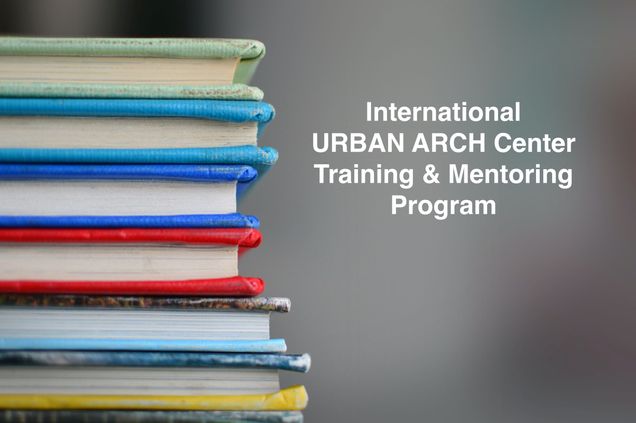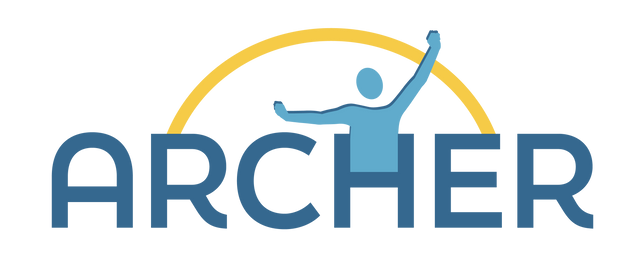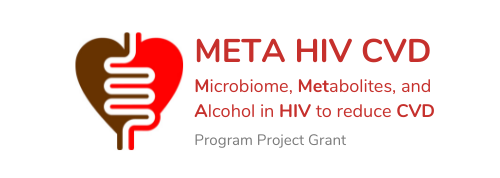Newsletter
Volume 9, Issue 3
July – September 2022
Check out the current issue of URBAN ARCH News, the quarterly newsletter bringing you news on the latest URBAN ARCH and related research.
International URBAN ARCH Training & Mentoring Program
In this edition of the URBAN ARCH Newsletter, we highlight the Center’s Training & Mentoring Program, which provides support to develop early and mid-career investigators into future leaders in HIV and alcohol research.
Click on the buttons below to see what the International URBAN ARCH Center Cores and Projects have been working on.
Spotlight on… Daniel Fuster
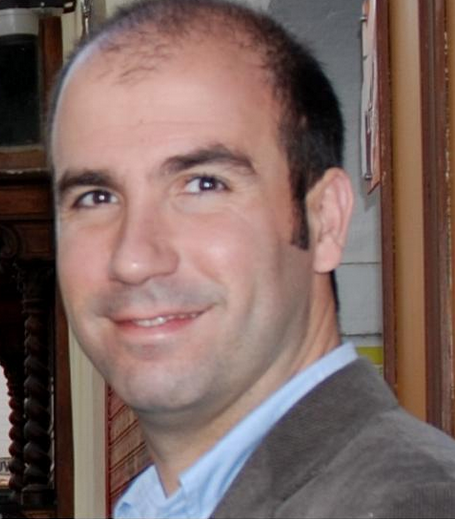 In this issue, we interview Daniel Fuster, MD, PhD, attending physician and clinical investigator at Hospital Universitari Germans Trias i Pujol, associate professor of medicine at Universitat Autonoma de Barcelona, and longtime collaborator with URBAN ARCH.
In this issue, we interview Daniel Fuster, MD, PhD, attending physician and clinical investigator at Hospital Universitari Germans Trias i Pujol, associate professor of medicine at Universitat Autonoma de Barcelona, and longtime collaborator with URBAN ARCH.
Article Spotlight
Are Varenicline and Cytisine Effective for Alcohol Use Reduction Among People With HIV and Substance Use?
People with co-occurring combustible cigarette and alcohol use may have increased risk of poor health outcomes and death, especially among those with HIV. Research shows that nicotine receptor partial agonists and nicotine replacement therapy (NRT) are effective treatments for smoking, but their efficacy for treating alcohol use disorder is unknown. URBAN ARCH researchers in Russia recently conducted a randomized controlled trial studying the effects of nicotinic acetylcholine receptor partial agonists varenicline and cytisine with NRT on alcohol consumption (outcome: number of prior-month heavy drinking days [HDD]) and smoking). Participants were 400 people with HIV, risky alcohol use (≥5 prior-month HDDs), and daily smoking. They received counseling for alcohol and cigarette use and were randomized to one of 4 interventions: varenicline plus placebo NRT (group 1), placebo varenicline plus NRT (group 2), cytisine plus placebo NRT (group 3), or placebo cytisine plus NRT (group 4).
- At 3 months, the mean (SD) number of HDDs was decreased compared with baseline across all groups:
- Group 1: 2.0 (3.8) HDDs versus 9.5 (6.1) HDDs
- Group 2: 2.1 (4.3) HDDs versus 9.3 (5.7) HDDs
- Group 3: 1.5 (3.3) HDDs versus 8.9 (5.0) HDDs
- Group 4: 2.4 (5.2) HDDs versus 9.6 (6.3) HDDs
- There were no significant differences at 3 months between groups in mean HDDs.
- There were no significant differences at 6 months between groups in smoking abstinence.
- Post hoc analyses suggested lower mean HDDs and higher alcohol abstinence among those who quit smoking versus those who continued.
Comments: This trial suggests that varenicline and cytisine were not more efficacious than NRT to treat risky alcohol use and smoking among people with HIV and substance use. However, all groups experienced decreases in number of HDDs at 3 months and secondary end points for alcohol and smoking at all time points.
Reference: Tindle HA, Freiberg MS, Cheng DM, et al. Effectiveness of varenicline and cytisine for alcohol use reduction among people with HIV and substance use: A randomized clinical trial. JAMA Netw Open. 2022;5(8):e2225129. PMCID: PMC9356316
Now Accepting New Trainees!
The International URBAN ARCH Training & Mentoring Program is now accepting new trainees.
Program goal: Support the next generation of researchers who focus on HIV/alcohol use.
Program offers:
- Workshops and trainings in research methods and concepts related to HIV, alcohol, and international research.
- Support for new trainee grant submissions and analyses, including facilitating access to URBAN ARCH repository data.
- Networking events to connect trainees to each other and to senior investigators.
Who is eligible: All trainees and early-stage investigators.
Participants are not required to commit to a certain level of participation and are encouraged to utilize the components of the program most appropriate given their career trajectory and time commitments.
Call for Proposals
The International URBAN ARCH Center invites trainees and early stage investigators to submit ideas for analyses using URBAN ARCH repository data. More information on available data can be found here.
Accepted proposals will receive the following:
- Statistical guidance from the Biostatistics and Data Management Core.
- Basic analytic support from Boston University’s School of Public Health Biostatistics and Epidemiology Data Analytics Center (BEDAC), who will run analyses for the proposed work.
- Support from investigators and project administrators in submitting results to conferences and preparing manuscripts.
- Financial support to present findings at the 2023 International URBAN ARCH Center Annual Meeting in Boston, MA.
Proposals are due by September 30, 2022 and can be submitted here. The following are required for proposal submission: CV or biosketch, title of project, and description of proposed analysis, including hypothesis and dependent and independent variables.
The International URBAN ARCH Center is now on Twitter as @Int_URBAN_ARCH!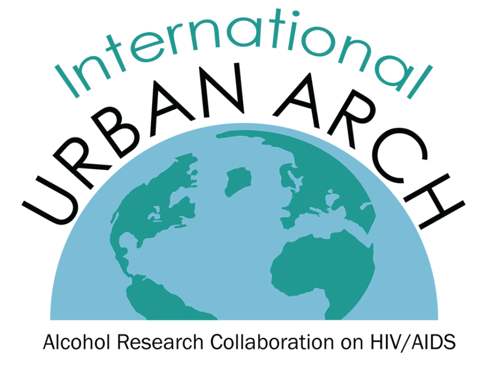
If you have a publication, event, or opportunity you would like promoted on the International URBAN ARCH Center twitter, please contact Natalia Gnatienko
New URBAN ARCH Publications
- Adong J, Fatch R, Emenyonu N, Muyindike W, Ngabirano C, Cheng D, Hahn J. Cell phone availability and usage for mHealth and intervention delivery to persons living with HIV in a low-resource setting: Cross-sectional study. JMIR Form Res. 2022 Aug 23;6(8):e35631. PMCID: PMC9449822
- Dey AK, Ennis N, Cheng DM, Blokhina E, Raj A, Quinn E, Bendiks S, Palfai T, Dunne EM, Cook RL, Krupitsky E, Samet JH. Impulsivity and linkage to HIV Care among people living with HIV in St. Petersburg, Russia. AIDS Behav. 2022 Jun 16. Epub ahead of print.
- Emenyonu N, Kekibiina A, Woolf-King S, Kyampire C, Fatch R, Dawson-Rose C, Muyindike W, Hahn J. Digital health screening in people with HIV in Uganda to increase alcohol use reporting: Qualitative study on the development and testing of the Self-Administered Digital Screener for Health. JMIR Form Res. 2022 Sep 1;6(9):e35015. PMCID: PMC9478818.
- Hook K, Sereda Y, Rossi S, Koberna S, Vetrova MV, Lodi S, Lunze K. HIV, substance use, and intersectional stigma: Associations with mental health among persons living with HIV who inject drugs in Russia. AIDS Behav. 2022 Aug 1. Epub ahead of print.
- Kim TW, Heeren TC, Samet JH, Bertholet N, Lloyd-Travaglini C, Winter MR, Magane KM, Gnatienko N, Bryant K, Rateau LJ, Muyindike WR, Hahn JA, Blokhina E, Saitz R. Alcohol and falls among people with HIV infection: A view from Russia and the United States. Alcohol Clin Exp Res. 2022 Aug 1. Epub ahead of print. PMCID: PMC950948
- Lodi S, Rossi SL, Bendiks S, Gnatienko N, Lloyd-Travaglini C, Vetrova M, Toussova O, Bushara N, Blokhina E, Krupitsky E, Ekstrand ML, Lioznov D, Samet JH, Lunze K. Correlates of intersectional HIV and substance use stigma affecting people with HIV and substance use in St. Petersburg, Russia. AIDS Behav. 2022 Aug 2. Epub ahead of print.
- Muyindike WR, Fatch R, Cheng DM, Emenyonu NI, Forman L, Ngabirano C, Adong J, Linas B, Jacobson KR, Hahn JA. Unhealthy alcohol use is associated with sub-optimal adherence to isoniazid preventive therapy in persons with HIV in southwestern Uganda. J Acquir Immune Defic Syndr. 2022 Aug 30. Epub ahead of print.
- Tindle HA, Freiberg MS, Cheng DM, Gnatienko N, Blokhina E, Yaroslavtseva T, Bendiks S, Patts G, Hahn J, So-Armah K, Stein MD, Bryant K, Lioznov D, Krupitsky E, Samet JH. Effectiveness of varenicline and cytisine for alcohol use reduction among people with HIV and substance use: A randomized clinical trial. JAMA Netw Open. 2022 Aug 1;5(8):e2225129. PMCID: PMC9356316.
Events and Conferences
- Conference on Retroviruses and Opportunistic Infections (CROI): February 19 – 22, 2023; Seattle, Washington, USA. Abstract Submission Deadline: September 15, 2022.
Click here for more events and conferences.
